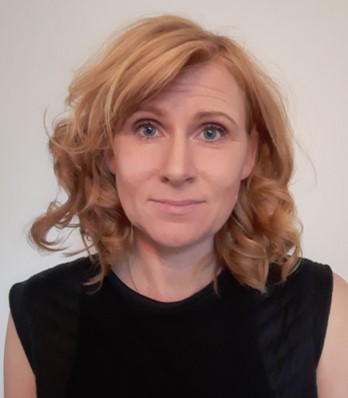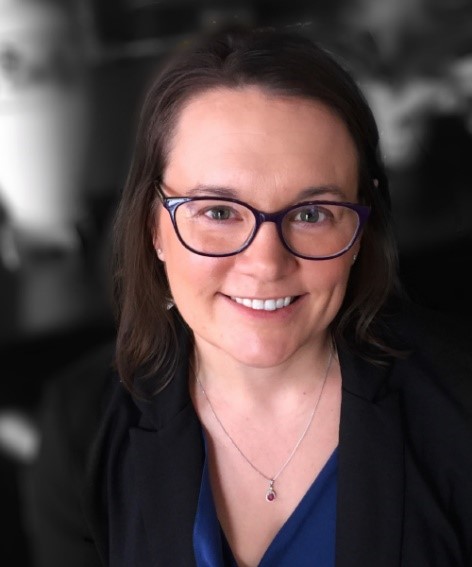Advancing future therapeutics
Join our live process intensification webinars
Lorem ipsum dolor sit amet, consectetur adipisicing elit. Voluptates natus esse, deserunt necessitatibus numquam amet rerum dicta in, iste sequi cupiditate distinctio voluptate et veritatis.
— quote source
As the drive towards targeted cost-effective biopharmaceuticals continues, improving flexibility and agility while getting more output from existing facilities through process intensification has become more important. Join us for a series of process intensification webinars covering upstream, downstream, and buffer management to help you find the best strategies for tomorrow.
Find the right intensification strategy for your upstream and downstream processes
Live webinar by Sanna Tronnersjö, Senior scientist, Cytiva; Gunnar Malmquist, Senior Principal Scientist, Cytiva; Andreas Castan, Strategic Technology Collaborations Leader, Cytiva
16 November 10:00AM EDT | 16:00 CEST Register
How do you know if an intensification approach will give you advantages over your current biomanufacturing process, and how do you choose the right one? Your upstream bioreactor operations might benefit from steady-state perfusion, concentrated fed-batch, or another option. While you might enhance your downstream capture (protein A step) with high-capacity resins, Fibro rapid cycling, or continuous multicolumn chromatography. But it can be difficult to understand how adopting any of these solutions will change your overall process, and what the implications are when you take a holistic approach to upstream and downstream intensification.
Using Cytiva’s Process Intensifier app, three of Cytiva’s foremost process intensification experts will show how different intensification approaches affect outputs using different scenarios.
Join our webcast to learn:
• What to expect from various intensification approaches for your upstream bioreactor operations and downstream capture (protein A step),
• How visualizing common intensification scenarios in the Process Intensifier app can help you understand their impacts on your processes, and
• What to consider when implementing intensified processes in your facility.
Susanna Tronnersjö is a molecular biologist with a background in transcriptional regulation, chromatin remodeling, and tumor biology. She received her PhD in molecular genetics in Uppsala and then continued her scientific training as a postdoctoral at the Karolinska Institute. Since joining Cytiva in 2015, Susanna has focused mainly on custom cell culture media design, large scale mAb production, and process intensification.
Gunnar Malmquist is a Senior Principal Scientist at Cytiva and an analytical chemist by training with a focus on chromatography and data analytics. He started his career at Pharmacia Fine Chemicals in 1979, working with quality control of chromatographic separation resins. He was later involved in the development of the ÄKTA™ chromatography system and UNICORN™ software, before moving in 1997 to development and characterization of preparative chromatographic resins. He has been responsible for the design of several of the leading resins on the market, including MabSelect™ and Capto™. Currently he is focused on downstream processing strategies, Quality by Design, and PAT, as well as using multivariate data analytics and mechanistic modelling to understand biomanufacturing processes.
Andreas Castan is a Strategic Technology Collaborations Leader at Cytiva. In this role, Andreas provides leadership and support to the Bioprocess business. His main area of expertise is in upstream processing. Prior to joining Cytiva, Andreas was Director of Upstream Development at Swedish Orphan Biovitrum, working with development of expression systems, process development of microbial and mammalian cell-based processes, and scale-up to cGMP manufacturing. During the last 20 years, Andreas has held several positions within biopharmaceutical development, including project and line management as well as manufacturing.

Increase efficiency in your manufacturing with the right buffer management strategy
An on-demand webinar by Jenny Dunker, Global Product Manager, Cytiva and Alexander Troken, Global Product Manager, Cytiva
Buffer preparation is still a highly manual activity in the biopharmaceutical industry that often requires a lot of resources due to the large number and overall volume of buffers and process liquids used in a typical bioprocess workflow.
In biomanufacturing, seven out of the ten downstream equipment types with the longest occupancy duration are buffer related. Holding tanks reserved for buffers also require significant floor space in large-scale production facilities that could be used for other core operations.
As a result, buffer preparation can create bottlenecks in the manufacturing process.
Most companies are still relying on the traditional ways of preparing buffers, but there are more modern, alternative buffer preparation methods that can bring significant savings and efficiency improvements while ensuring high quality.
It is critical that every process is evaluated for the optimal buffer management strategy as there is no one solution that fits all processes.
For example, outsourced premade buffers can be a simple and fast way to gain new capacity, especially in process development and in “downsized” single-use facilities, providing speed-to-market and flexibility.
With inline conditioning and inline dilution, where buffers are prepared in-line from buffer concentrates or stock solutions, buffer preparation can be directly integrated with the chromatography or filtration step. This eliminates the need for intermediate storage in buffer bags or holding tanks, bringing significant reductions in floor space and tank volumes with increased automation.
In this webinar you will learn:
• Advantages, sweet spots, and drawbacks with the different buffer preparation approaches through real-life, data-driven examples
• Important considerations for choosing the right buffer management strategy
• How to assure consistent buffer quality with inline dilution and inline conditioning, or when outsourcing buffers
• What are the technical capabilities focusing on quality that are built into these approaches?
• Buffer management trends and biopharmaceutical companies’ long term-strategies for the future

Four steps toward connected biomanufacturing: a pragmatic approach to start-to-finish processing
An on-demand webinar by Avril Vermunt, Connected Biomanufacturing Program Manager, Cytiva
There is no misrepresentation in the potential of connected and continuous manufacturing. So why isn’t everyone adopting these benefit-packed processes? This presentation will share Cytiva's strategy for building confidence in technology and process knowledge. It will also address the regulatory expectations and business case examples for connected & continuous processes in biomanufacturing’s future.
In this webinar you will learn:
• A pragmatic approach to start-to-finish connected bioprocessing
• Process design strategies and its dependence on desired outcome
• Implementation and execution strategies
As a Connected Biomanufacturing Program leader, Avril brings strong experience from large-scale bioprocessing and a profound understanding of process intensification. Avril joined the GE Healthcare’s Life Sciences business, now Cytiva, in 2015 as a Bioprocess Hardware Specialist. She loves lending her large-scale bioprocess expertise to help colleagues select and implement process solutions that optimize efficiency and productivity. Her contributions have led to several successful tech transfers globally, including Amgen Singapore’s Next Generation Manufacturing facility. Prior to her time in Amgen’s process development organization, she worked in manufacturing and process engineering at Diosynth. She currently serves as an ISPE Rocky Mountain Chapter board director and a Facility of the Year Award (FOYA) committee chair and has been an ISPE member since joining the student chapter at North Carolina State University where she received her degree in Chemical Engineering. She is currently pursuing an Executive MBA at the University of Colorado.

Intensified upstream operations with Xcellerex APS automated perfusion system
An on-demand webinar by Radhika Jayakar, Senior product manager, Cytiva
Process intensification and implementation of perfusion technologies can help provide greater efficiency to upstream operations. This presentation will describe how a fully automated, single-use perfusion system can mitigate many of the challenges currently faced when implementing perfusion processes at production scale.
In this webinar you will learn:
• Different ways to intensify cell culture operations
• How Xcellerex APS takes risky manual operations out of perfusion applications
• That a fully integrated perfusion operation can be implemented using standard systems
With a Master’s in biotechnology, Radhika has been in the Consumer Products and Biopharma industry for the last 17 years. She has had a diverse career with roles in research and development, business development, and product management. Her focus over the last 3 years, as New Product Introductions Leader within Cytiva, has been in the Continuous Bioprocessing segment. Here she has led the devolvement of Xcellerex APS from product concept through to commercialization.

Implementation of process intensification strategies across the entire cell culture workflow
An on-demand webinar by Andreas Castan, Ph.D., Strategic Technology Collaborations Leader, Cytiva
This presentation will describe strategies to intensify upstream operations. We will discuss the latest trends across the industry in relation to process intensification and give specific examples of how both N-1 and N bioreactor operations can be intensified using the latest technologies. Furthermore, we will discuss the importance of cell culture media optimization prior to implementation of any new process.
In this webinar you will learn:
• The importance of cell culture media optimization in perfusion operations
• How intensified N-1 operations can increase facility utilization and productivity
• The pros and cons of various perfusion operations in the production bioreactor
Andreas Castan is Strategic Technology Partnerships Leader for Cytiva. In this role, Andreas provides leadership and support to the Bioprocess business. His main area of expertise is in upstream processing. Prior to joining Cytiva, Andreas was Director of Upstream Development at Swedish Orphan Biovitrum, working with development of expression systems, process development of microbial and mammalian cell-based processes, and scale-up to cGMP manufacturing scales. During the last 20 years, Andreas has held several positions within biopharmaceutical development, including project and line management as well as manufacturing.

Strategies and emerging technologies for mAb capture
An on-demand webinar by Gunnar Malmquist, Principal Scientist, Cytiva
In this webinar we will describe and evaluate different process intensification strategies for the mAb capture step. Strategies will depend on the mode of upstream operations (fed batch or perfusion) and the desired process improvement of the capture step, e.g., productivity, cost, or process time, as well as the type of manufacturing scenario (clinical or commercial). We will discuss opportunities with the introduction of high capacity protein A resins, how and when multicolumn chromatography is beneficial, and how emerging technologies such as rapid cycling Fibro chromatography can address bottlenecks.
In this webinar you will learn:
• Strategies and emerging technologies for intensifying the mAb capture step
• How the design of your upstream mode may determine your optimal downstream solution
• When technologies like rapid cycling chromatography are competitive alternatives for the protein A step
Gunnar Malmquist is a principal scientist at Cytiva and an analytical chemist by training with a focus on chromatography and data analytics. He started his career at Pharmacia Fine Chemicals in 1979, working with quality control of chromatographic separation resins. He was later involved in the development of the ÄKTA™ chromatographic system and UNICORN™ software, before moving in 1997 to development and characterization of preparative chromatographic resins. He has been responsible for the design of several of the leading resins on the market, including MabSelect™ and Capto™. Currently he is focused on downstream processing strategies, Quality by Design and PAT, as well as using multivariate data analytics and mechanistic modelling to understand biomanufacturing processes.

Four Steps Toward Connected Biomanufacturing: A Pragmatic Approach to Start to Finish Processing
8 April 10:00AM EDT | 16:00 CEST Register
There is no misrepresentation in the potential of connected and continuous manufacturing. So why isn’t everyone adopting these benefit-packed processes? This presentation will share GE’s strategy for the building confidence in technology & process knowledge. It will also address the regulatory expectations and business case examples for connected & continuous processes in biomanufacturing’s future.
Avril Vermunt, Connected Biomanufacturing Program Manager
As a Connected Biomanufacturing Program leader, Avril brings strong experience from large scale bioprocessing and a profound understanding of process intensification. Avril joined the GE Healthcare’s Life Sciences business in 2015 as a Bioprocess Hardware Specialist. She loves lending her large-scale bioprocess expertise to help colleagues select and implement process solutions that optimize efficiency and productivity. Her contributions have led to several successful tech transfers globally, including Amgen Singapore’s Next Generation Manufacturing facility. Prior to her time in Amgen’s process development organization, she worked in manufacturing and process engineering at Diosynth. She currently serves as an ISPE Rocky Mountain Chapter board director and a Facility of the Year Award (FOYA) committee chair, and has been an ISPE member since joining the student chapter at North Carolina State University where she received her degree in Chemical Engineering. She is currently pursuing an Executive MBA at the University of Colorado.

Four Steps Toward Connected Biomanufacturing: A Pragmatic Approach to Start to Finish Processing
8 April 10:00AM EDT | 16:00 CEST Register
There is no misrepresentation in the potential of connected and continuous manufacturing. So why isn’t everyone adopting these benefit-packed processes? This presentation will share GE’s strategy for the building confidence in technology & process knowledge. It will also address the regulatory expectations and business case examples for connected & continuous processes in biomanufacturing’s future.
Avril Vermunt, Connected Biomanufacturing Program Manager
As a Connected Biomanufacturing Program leader, Avril brings strong experience from large scale bioprocessing and a profound understanding of process intensification. Avril joined the GE Healthcare’s Life Sciences business in 2015 as a Bioprocess Hardware Specialist. She loves lending her large-scale bioprocess expertise to help colleagues select and implement process solutions that optimize efficiency and productivity. Her contributions have led to several successful tech transfers globally, including Amgen Singapore’s Next Generation Manufacturing facility. Prior to her time in Amgen’s process development organization, she worked in manufacturing and process engineering at Diosynth. She currently serves as an ISPE Rocky Mountain Chapter board director and a Facility of the Year Award (FOYA) committee chair, and has been an ISPE member since joining the student chapter at North Carolina State University where she received her degree in Chemical Engineering. She is currently pursuing an Executive MBA at the University of Colorado.

Four Steps Toward Connected Biomanufacturing: A Pragmatic Approach to Start to Finish Processing
8 April 10:00AM EDT | 16:00 CEST Register
There is no misrepresentation in the potential of connected and continuous manufacturing. So why isn’t everyone adopting these benefit-packed processes? This presentation will share GE’s strategy for the building confidence in technology & process knowledge. It will also address the regulatory expectations and business case examples for connected & continuous processes in biomanufacturing’s future.
Avril Vermunt, Connected Biomanufacturing Program Manager
As a Connected Biomanufacturing Program leader, Avril brings strong experience from large scale bioprocessing and a profound understanding of process intensification. Avril joined the GE Healthcare’s Life Sciences business in 2015 as a Bioprocess Hardware Specialist. She loves lending her large-scale bioprocess expertise to help colleagues select and implement process solutions that optimize efficiency and productivity. Her contributions have led to several successful tech transfers globally, including Amgen Singapore’s Next Generation Manufacturing facility. Prior to her time in Amgen’s process development organization, she worked in manufacturing and process engineering at Diosynth. She currently serves as an ISPE Rocky Mountain Chapter board director and a Facility of the Year Award (FOYA) committee chair, and has been an ISPE member since joining the student chapter at North Carolina State University where she received her degree in Chemical Engineering. She is currently pursuing an Executive MBA at the University of Colorado.
